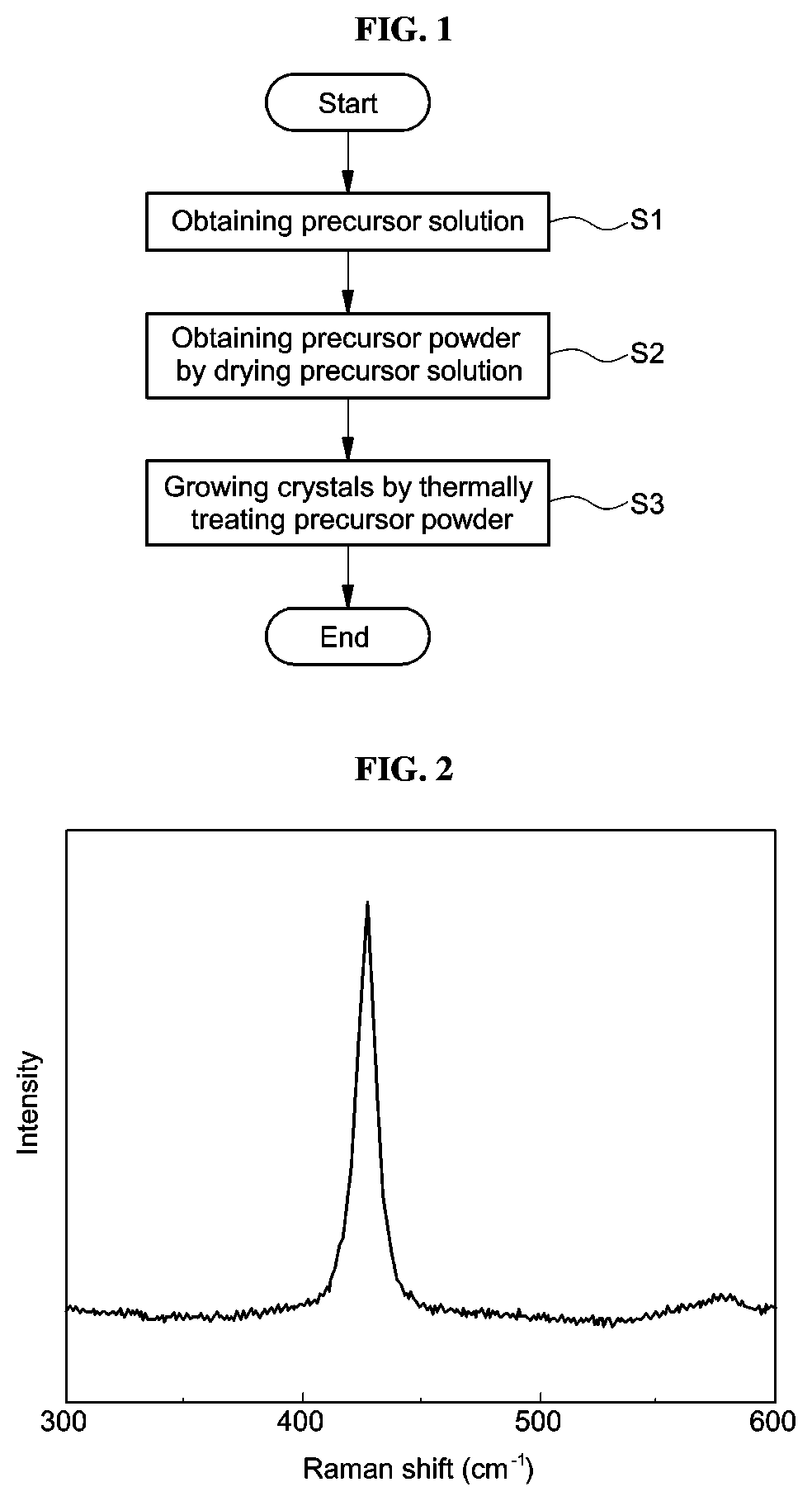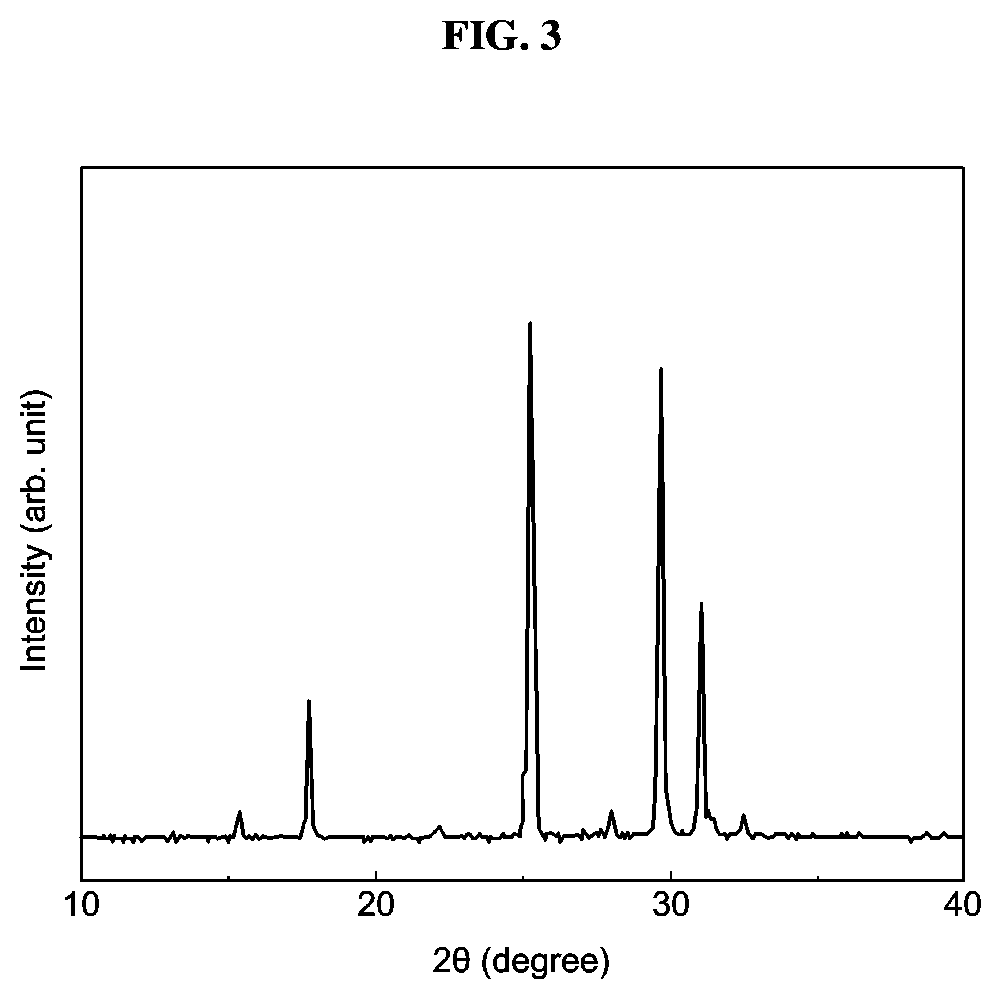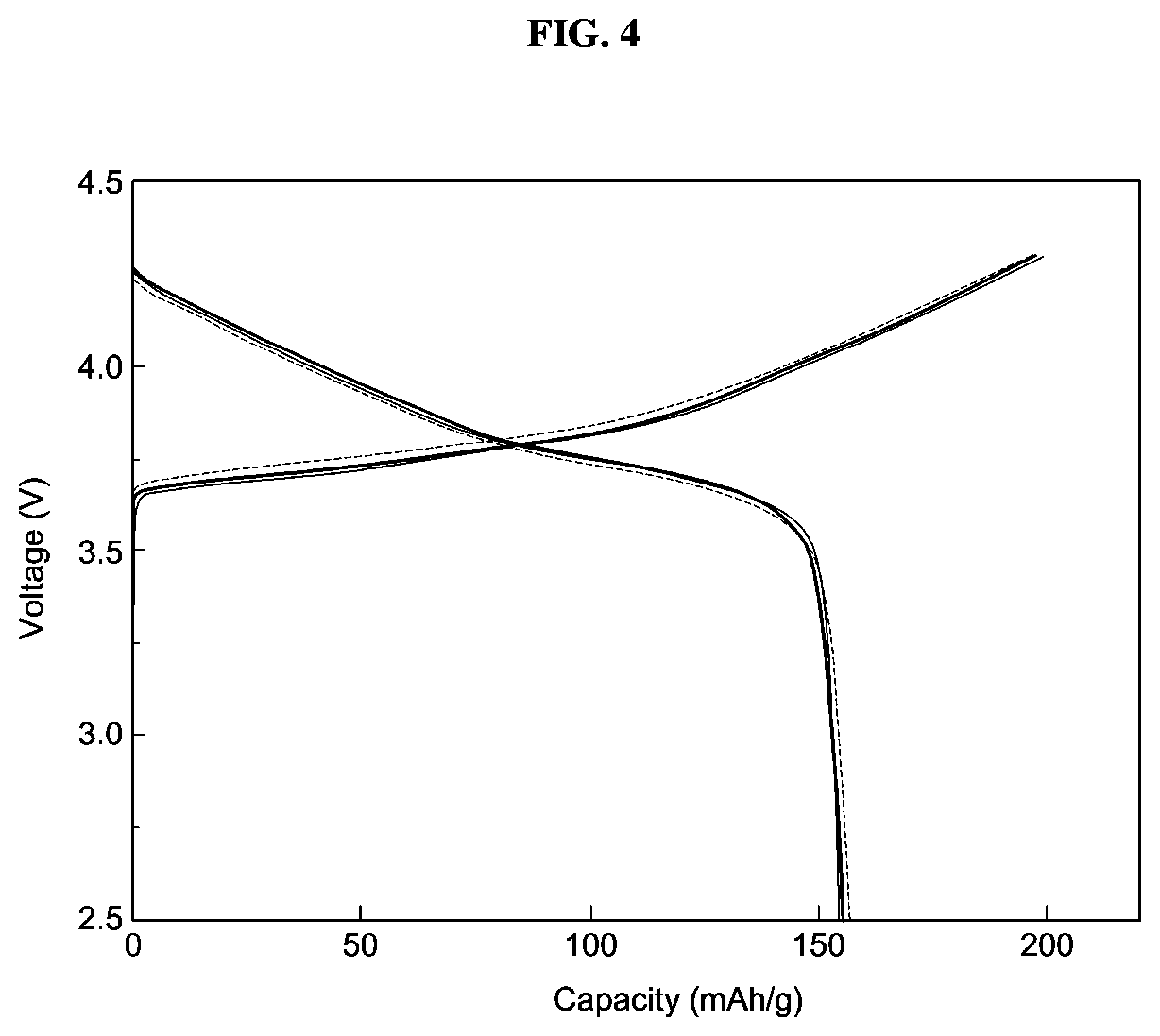Method of preparing sulfide-based solid electrolyte for all-solid battery having argyrodite-type crystal structure
a technology of solid electrolyte and all-solid battery, which is applied in the direction of cell components, conductors, electrochemical generators, etc., can solve the problems of less likely to serve as a battery for next-generation electric vehicles, easy to use and long life cycle, and low lithium ion conductivity, etc., to achieve high lithium ion conductivity and increase price competitiveness
- Summary
- Abstract
- Description
- Claims
- Application Information
AI Technical Summary
Benefits of technology
Problems solved by technology
Method used
Image
Examples
example
[0062]A better understanding of the present invention will be given through the following examples, which are merely set forth to illustrate, but are not to be construed as limiting the present invention.
example —
Example—Preparation of Sulfide-Based Solid Electrolyte
[0063](S1) 4.28 g of a lithium sulfide powder (made by Sigma Aldrich), 4.14 g of a phosphorus pentasulfide powder (made by Sigma Aldrich) and 1.57 g of a lithium chloride powder (made by Sigma Aldrich) were weighed and mixed. The resulting mixture was dissolved in 100 g of an acetonitrile solvent to give a precursor solution. The raw materials were stirred at room temperature until all the raw materials were dissolved.
[0064](S2) The precursor solution was dried in a vacuum at about 200° C. for about 12 hr, thus completely removing the acetonitrile solvent. Thereby, a precursor powder was obtained.
[0065](S3) The precursor powder was thermally treated at a temperature of about 550° C. for about 5 hr, thus obtaining a sulfide-based solid electrolyte.
preparation example
Solid Battery
[0066]An all-solid battery, configured to include the above sulfide-based solid electrolyte and to include a cathode, an anode, and a solid electrolyte layer disposed between the cathode and the anode, was manufactured.
[0067](Solid electrolyte layer) A solid electrolyte layer having a thickness of 500 μm was formed by subjecting the sulfide-based solid electrolyte of Example to compression molding.
[0068](Cathode) A cathode having a thickness of 30 μm was formed on one side of the solid electrolyte layer using a powder comprising an active material (niobium-doped lithium nickel cobalt manganese-based active material, Nb-doped NCM-622), the sulfide-based solid electrolyte of Example and a conductive additive (Super C), which were mixed together. The amount of loaded active material for the cathode was 5.8 mg / cm2.
[0069](Anode) An anode was formed by attaching a piece of lithium foil having a thickness of 100 μm to the remaining side of the solid electrolyte layer.
PUM
| Property | Measurement | Unit |
|---|---|---|
| temperature | aaaaa | aaaaa |
| temperature | aaaaa | aaaaa |
| temperature | aaaaa | aaaaa |
Abstract
Description
Claims
Application Information
 Login to View More
Login to View More - R&D
- Intellectual Property
- Life Sciences
- Materials
- Tech Scout
- Unparalleled Data Quality
- Higher Quality Content
- 60% Fewer Hallucinations
Browse by: Latest US Patents, China's latest patents, Technical Efficacy Thesaurus, Application Domain, Technology Topic, Popular Technical Reports.
© 2025 PatSnap. All rights reserved.Legal|Privacy policy|Modern Slavery Act Transparency Statement|Sitemap|About US| Contact US: help@patsnap.com



